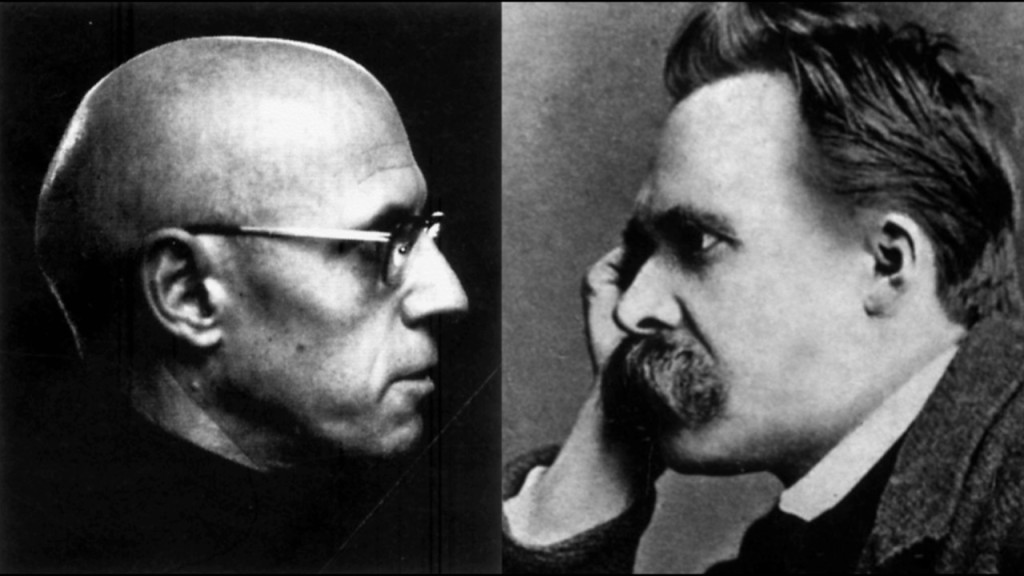Juxtaposing quotations from Michel Foucault (d. 1984) and Friedrich Nietzsche (d. 1900). First, here is Foucault:
“All knowledge rests upon injustice; there is no right, not even in the act of knowing, to truth or a foundation for truth; and the instinct for knowledge is malicious (something murderous, opposed to the happiness of mankind).”[1]
Friedrich Nietzsche on knowledge as imposition:
“Genuine philosophers … are commanders and legislators: they say, ‘thus it shall be! … . Their ‘knowing is creating, their creating is a legislation, their will to truth is—will to power.” [2]
Also from Nietzsche:
“people now rave everywhere, even under the guise of science, about coming conditions of society in which ‘the exploiting character’ is to be absent:—that sounds to my ear as if they promised to invent a mode of life which should refrain from all organic functions.”[3]
To which I add this from Foucault:
“I am simply a Nietzschean, and I try as far as possible, on a certain number of issues, to see with the help of Nietzsche’s texts.”
Sources:
[1] Michel Foucault, “Nietzsche, Genealogy, and History,” in Language, Counter-Memory, Practice: Selected Essays and Interviews (Ithaca, NY: Cornell University Press, 1980).
[2} Nietzsche, Beyond Good and Evil, sec. 211.
[3] Nietzsche, Beyond Good and Evil, sec. 259.
[4] Foucault, Foucault Live, Collected Interviews, 1961-1984, ed. Sylvère Lotringer, trans. Lysa Hochroth and John Johnston (New York: Semiotext[e], 1989), p. 471.
Related:
“Foucault as Rousseauian.”

Its funny that Nietzsche was so much into compliments about Darwin’s science, which he used as a support for his idea of Will to Power and basic instincts as the predominant drive in Man… I don’t think I’ve ever read so much sophistry from a modern thinker as Nietzsche…
What is the full context of the first Foucault quote?
Makes you wonder why Mr J Peterson is so enamoured of Nietzsche -does he not know his essential malevolence. But then what about Jung lol another fixation of his.. .
I think the best way to think about Nietzsche is in terms of three sub-issues:
1. Intellectual history: What Nietzschean ideas were influential, e.g., upon the pomo?
2. Criticism: What themes and figures did Nietzsche argue against effectively, e.g., Plato, the Christians, Kant, etc.?
3. Positive positions: What ideas did Nietzsche advance as his own answers to philosophical questions, e.g., about ontology, knowledge, values?
I can’t speak for JBP, but my sense is that he’s mostly about 1, some of 2, and not much at all about 3.